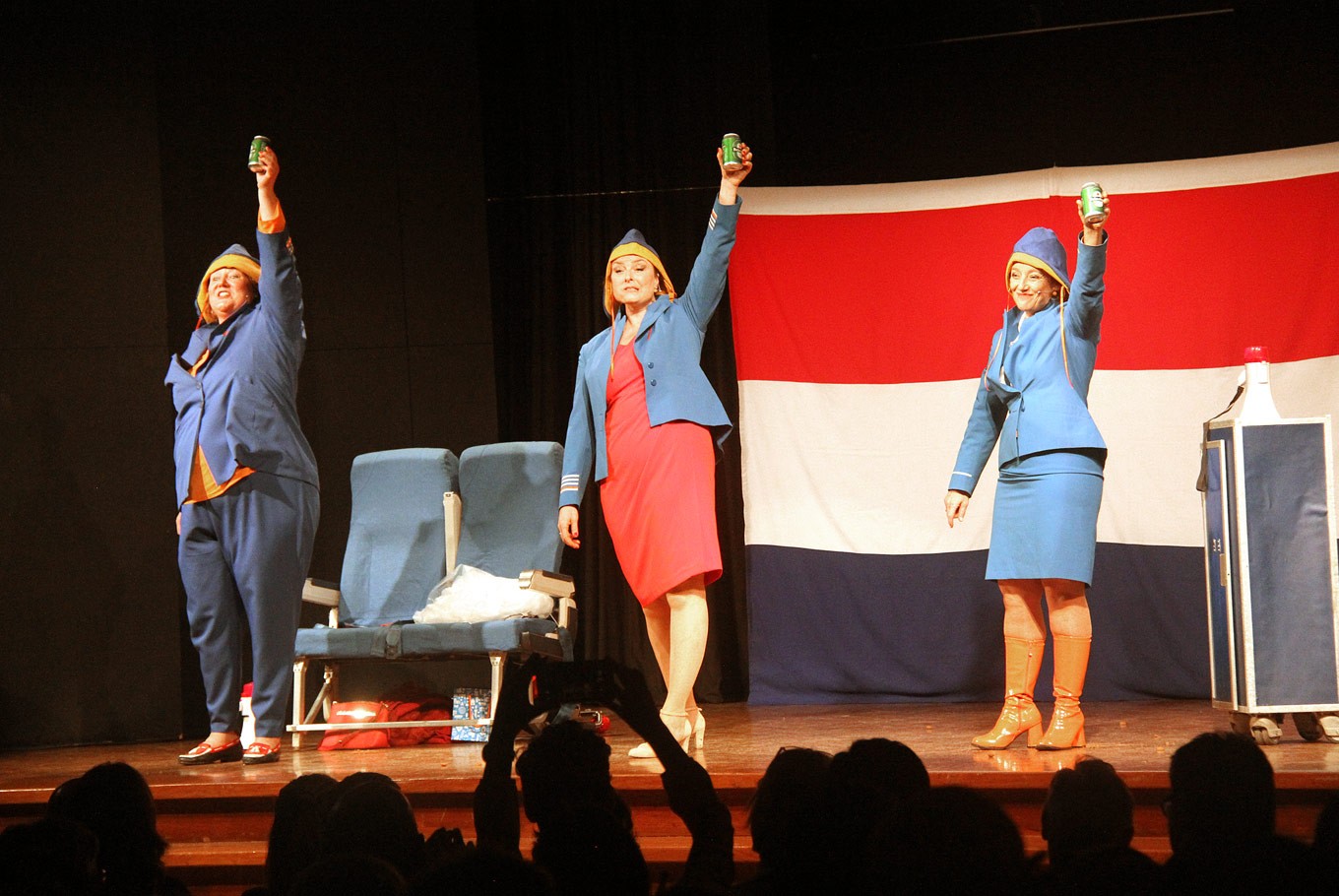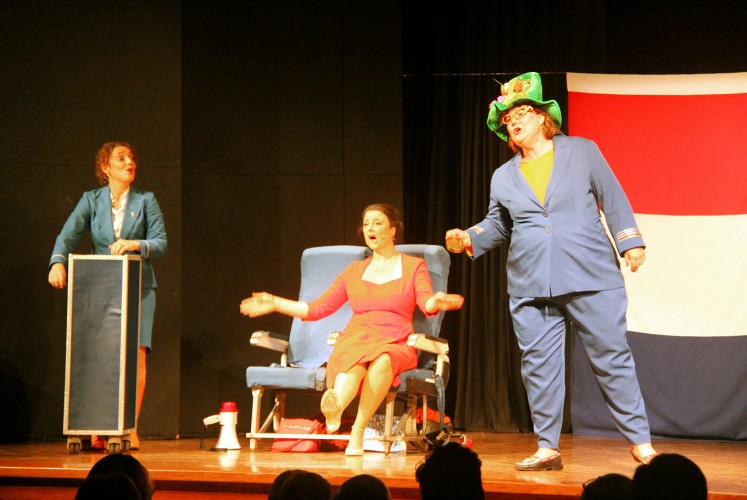Popular Reads
Top Results
Can't find what you're looking for?
View all search resultsPopular Reads
Top Results
Can't find what you're looking for?
View all search resultsDutch troupe satirizes nation for comedy cabaret
Change text size
Gift Premium Articles
to Anyone
T
heatergroep Plankgas came all the way from The Hague in the Netherlands to Indonesia in order to perform a cabaret play that tries to convey the unique characteristics of the Dutch as a nation.
The name of the play is Dealing with the Dutch and the group recently performed it in the auditorium of the Dutch cultural center Erasmus Huis in Rasuna Said, Jakarta.
With an ensemble of three actresses, the troupe acted out the way the Dutch live their daily lives in front of an audience consisting of Indonesian youths, Dutch university alumni and people who have families in the Netherlands.
Michael Rauner, head of the Erasmus Huis, said the cultural center could have given a lecture or shown some movies to let people learn about the Dutch, however, he and his team thought that humor could be more powerful.
“The best way is to make people laugh about the little things that make Dutch people special,” he said.
According to Rauner, the performance was not a complete depiction of the Netherlands and its people. He explained that the people in the northern part of the country are quiet.
Meanwhile, the people in the central part of the country are funny and like to party. Those in the south of the Netherlands are friendly and have an eating culture.
The main thing he liked about the performance was the exaggeration of Dutch people’s little idiosyncrasies. Since it is a cabaret, it needs to be little bit extreme in order to make it bigger and funnier.
Dealing with the Dutch tells the story of a foreigner going to the Netherlands, and becomes a kind of reflection of how the Dutch behave.
The whole performance takes around an hour, starting off with a scene on a plane in which two Dutch actresses — Mechteld Schelberg and Anna Nicolai — play flight attendants and British actress Camilla van Doorn plays a passenger.
The premise is taking the audience on a flight from Jakarta to the Netherlands. The show used the flight scene to display a number of stereotypes about the Dutch.
One of the most common stereotypes about the Dutch is that they can be very stingy, which is portrayed when Camilla asks for some free water from the flight attendants.
Mechteld tells Camilla that if she wants free water, she has to go to the restroom. However, Anna then adds that it costs 50 cents to access the restroom.
In another scene, the performers show the typical bluntness of the Dutch. In this scene, Camilla asks Anna about her new colored hair, the Dutch flight attendant simply answers, “I don’t like it. Makes you really washed out.”
The answer strikes Camilla as being too blunt and she responds by singing a line, “I miss when people don’t say exactly what they mean.”
The auditorium was filled with laughter throughout the play, and Mechteld admitted that this show was about Dutch humor and could be pretty tough and a little bit over the top.
“Sometimes, it actually goes too far. But we like that because it makes some things clear,” she said.
While preparing for the roles, Camilla admitted that the team had a detailed questionnaire with around 40 questions for expatriates living in The Hague. The questionnaire served as a means to kick off the conversation.
“We talked to a lot of our friends, a lot of our international community in Holland,” Camilla, who is married to a Dutch man, told The Jakarta Post.
“We did a lot of research, asking very, very specific things about daily life in Holland. What they liked, what they didn’t like, what irritated them, what they found annoying, what they appreciated,”
“We spent about a year preparing for the show […] The main thing we wanted to do was not make it clichéd. That took a long time because it’s easy to fall into stereotypes.”
Meanwhile, Suni Wijogawati, project leader of the cabaret from the Erasmus Huis said the play did not have any ill intention toward the Dutch as a nation.
“Certainly every nation has its own shortcomings,“ Suni said.
“But in this performance, the shortcomings and uniqueness and peculiarity [and] characteristics of the Dutch people are delivered or packaged in a funny way. So that could be accepted more easily,”
Suni, who lived the first 32 years of her life in the Netherlands, defined such shortcomings as how the Dutch would act due to cultural differences with Indonesians.
For instance, she said, the Dutch were straight to the point while Indonesians generally did not get their point across quickly.
“It’s red or white. What do you want? Like it or you don’t like it?” Suni said, referring to how the Dutch would communicate.
“You have to read between the lines with Indonesians.”
The cabaret was intended as a cultural exchange in hopes that mutual understanding and mutual respect would be created between the two nations.
Indonesia was once a colony of the Netherlands and this history can never be erased, according to Suni. However, she added, both countries should see what lies ahead in terms of what could be done together for the future.












